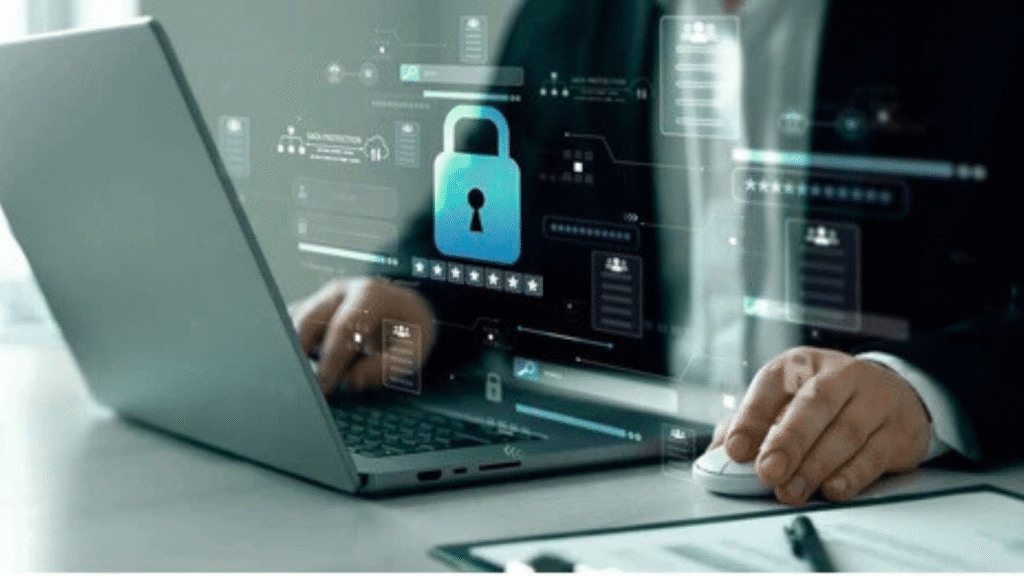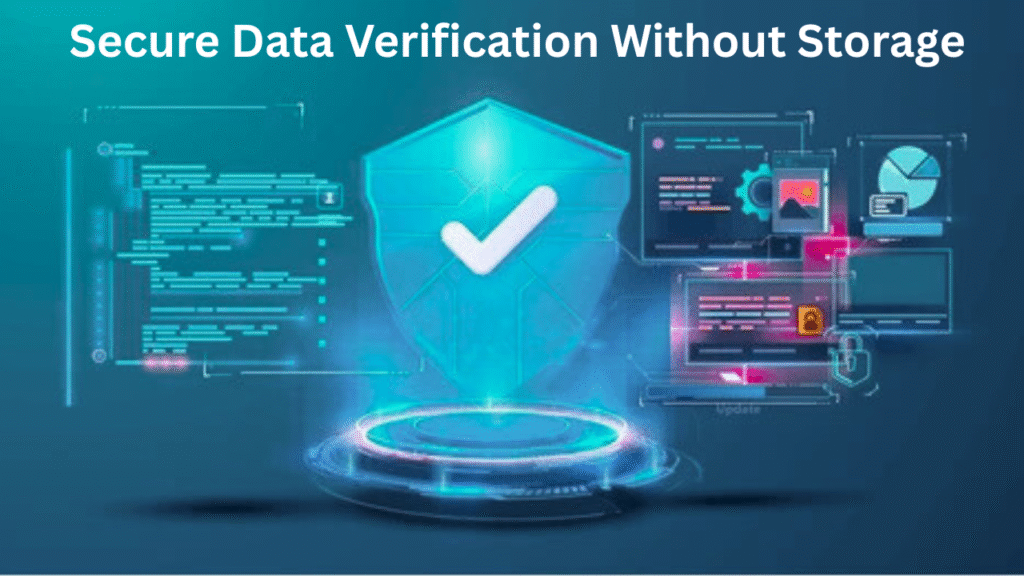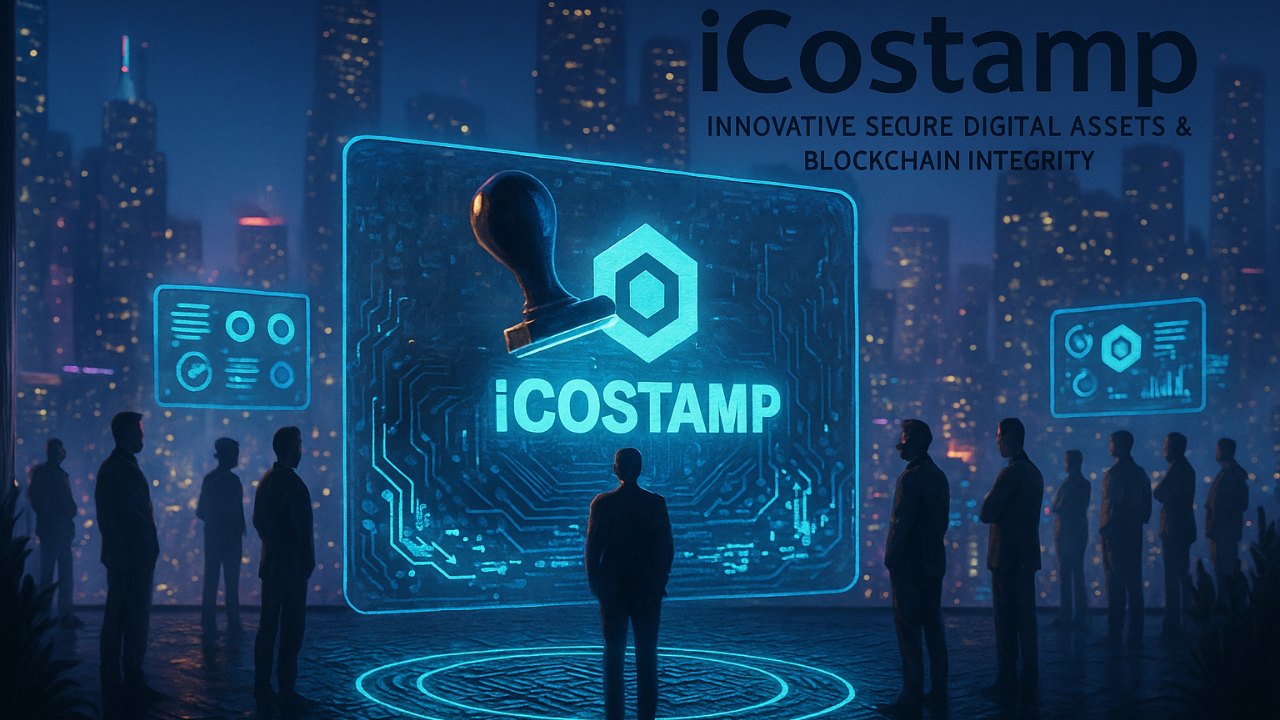Did you know that nearly 30% of digital records are tampered with or lost before they reach the necessary authorities? What is iCostamp, and how does it keep data trustworthy? As hackers become increasingly sophisticated, protecting your files has never been more crucial.
People often ask, “Can blockchain really prove the authenticity of digital files?” A report from IDC shows that by 2025, companies that adopt blockchain-based solutions like iCostamp will reduce data fraud by more than 50%. That’s a strong reason why this technology matters today.
This article shows you exactly how this system works and why companies across multiple industries now rely on it. You’ll learn about the technology, see real examples, and understand why this matters for your business or personal records today.
Table of Contents
iCostamp and Why It Matters for Digital Records
iCostamp is a blockchain timestamping service that proves when your documents were created. It works by taking a digital fingerprint of your file and recording it on a public blockchain. This creates permanent proof that your document existed at a specific moment in time.
The service doesn’t store your actual files. Instead, it generates a cryptographic hash , a unique code that represents your document. Think of it like a DNA sample. If someone changes even one letter in your document, the hash becomes completely different.
Why does this matter? Traditional timestamping methods rely on trusted third parties who maintain their own servers. These systems can be hacked, manipulated, or shut down. A distributed consensus model spreads the proof across thousands of computers worldwide, making it virtually impossible to fake.
According to a 2024 report by Gartner, 67% of enterprises will adopt blockchain-based verification systems by 2026. The demand comes from industries that handle sensitive information daily. Law firms need to prove when contracts were signed. Healthcare providers must show that medication records weren’t altered. Supply chain companies track products from the factory to the customer.
Document authentication becomes simple with this technology. You upload your file, receive a digital certificate, and anyone can verify it later. The verification takes seconds and provides mathematical certainty that your file hasn’t been modified since the timestamp was created.
iCostamp Builds Trust with Blockchain

The platform builds trust through blockchain security that operates independently of any single company or government. When you create a timestamp, the system broadcasts your document’s hash to a decentralized network. Thousands of computers around the world validate and record this information.
Each timestamp connects to previous timestamps, forming an immutable ledger. This chain structure makes it impossible to change old records without redoing all the work that came after. The amount of computer power required makes tampering economically impossible for even the wealthiest attackers.
Data integrity is guaranteed through mathematical proofs rather than trust in people or organizations. The blockchain doesn’t care who you are or why you’re creating a timestamp. It simply records the hash and the time, creating an objective record that anyone can verify.
A study by Deloitte in 2024 found that blockchain-based verification reduces document disputes by 89% compared to traditional methods. Legal teams spend less time arguing about when documents were created. Insurance companies settle claims faster because they can verify evidence immediately.
The timestamp verification process works backwards as well as forwards. You can prove your document existed before a certain date, which matters for patents, copyrights, and legal disputes. If someone claims they invented something first, your timestamp might prove otherwise.
Real-time tracking of document creation helps businesses maintain compliance with regulations. Financial institutions must prove they kept proper records at specific times. The technology provides auditable proof that satisfies regulators without requiring manual processes.
Creating Blockchain Timestamps Made Easy
Creating a timestamp with iCostamp takes just minutes, even if you’ve never used blockchain technology before. The process protects your privacy while creating permanent proof of your document’s existence. iCostamp creates blockchain timestamps in a few clear steps:
First, it applies a cryptographic hash, which scrambles the file into a fixed-length code. This keeps the file’s details private while making the output unique. The hash gets calculated on your device before anything gets uploaded, ensuring your actual document never leaves your computer.
Next, the hash is sent to a timestamp authority that verifies it. This verification happens through the decentralized network, where thousands of computers validate the information independently. No single authority controls the process.
Then, this hash is grouped with others and stored on a blockchain block. Within minutes, the blockchain network has validated and permanently recorded this information. The grouped structure makes the system more efficient while maintaining security.
Finally, iCostamp issues a digital certificate to the user showing the exact time and blockchain proof. This certificate contains the hash, timestamp, blockchain transaction details, and all information needed for future verification.
Later verification requires only the original file and the certificate. Anyone can check whether your document matches the hash recorded on the blockchain. The verification happens locally on their device, so your file remains private during the checking process.
Privacy protection works because hashes only go one direction. Someone looking at the hash cannot reconstruct your document. They can only verify that a specific document matches the recorded hash. This makes the system perfect for sensitive information.
According to IBM’s blockchain report from 2024, 92% of users cite privacy features as a primary reason for choosing blockchain timestamping over traditional methods. The ability to prove authenticity without revealing content matters for medical records, legal documents, and proprietary business information.
Tamper-proof record creation happens automatically. The system doesn’t require you to understand complex blockchain concepts. You simply upload, receive your certificate, and store it safely. The blockchain handles all the technical details behind the scenes.
How iCostamp Keeps Business Data Safe

Different industries have adopted this technology to solve specific problems. Legal proof requirements drive adoption in law firms and courts. Lawyers timestamp evidence, contracts, and correspondence to establish undeniable records of when documents existed.
One example comes from a California law firm that won a patent dispute using blockchain timestamps. The firm’s client invented a medical device in 2022. A competitor claimed they invented it first. The blockchain timestamp proved the client’s design documents existed six months before the competitor filed their patent application. The case settled immediately once the timestamp evidence was presented.
Healthcare institutions use the platform for patient records and clinical trial data. A pharmaceutical company timestamps research data as experiments progress. This proves they didn’t manipulate results after seeing outcomes. Regulatory agencies increasingly accept these timestamps as valid proof of research integrity.
Why Supply Chain Companies Choose iCostamp
Supply chain management benefits from asset monitoring capabilities through:
- Product Authentication: Verify genuine products and eliminate counterfeits at each distribution point
- Quality Tracking: Timestamp inspection reports from manufacturing to final delivery
- Compliance Documentation: Prove regulatory checks happened when claimed, not backdated
- Consumer Transparency: Allow customers to verify product history through QR code scanning
A coffee company timestamps quality inspection reports at each step from farm to retail. Customers scan a QR code to see the complete verified history of their coffee beans. The timestamps prove each inspection happened when the company claims it did.
Industry Applications Table
| Industry | Primary Use | Benefit |
| Legal Services | Contract timestamping | Proves document creation dates in disputes |
| Healthcare | Patient record verification | Ensures medical histories weren’t altered |
| Supply Chain | Product tracking | Validates authentic goods and prevents counterfeits |
| Insurance | Claims documentation | Reduces fraud by timestamping evidence |
| Real Estate | Property document authentication | Prevents title fraud and document forgery |
IoT data logging represents another growing application. Manufacturing plants timestamp sensor readings from equipment. When machines break down, the timestamps prove whether maintenance was performed as scheduled. Insurance companies use this data to process warranty claims accurately.
How Financial Services Use Blockchain Timestamps
Financial services timestamp transaction records and compliance documents for multiple purposes:
- Audit Trail Creation: Maintain verifiable records of all transactions and decisions
- Regulatory Compliance: Prove documentation existed at required times for inspections
- Fraud Prevention: Timestamp communications and agreements to prevent disputes
- Internal Controls: Verify that procedures were followed in the correct sequence
Banks must prove they maintained proper documentation at specific times. Blockchain timestamps create audit trails that satisfy regulators without requiring trusted third parties to maintain records.
A survey by PricewaterhouseCoopers in 2024 showed that 78% of supply chain companies plan to implement blockchain timestamping within two years. The technology solves problems with counterfeit goods, regulatory compliance, and supplier verification that cost industries billions annually.
You Might Also Like: TitaniumInvest.com Innovative Investment Path to Financial Growth
Why iCostamp Beats Traditional Methods
Traditional timestamp authority systems require you to trust a central organization. That organization maintains servers, employs people, and operates as a business. If they make mistakes, get hacked, or go out of business, your timestamps might become worthless.
The public blockchain model removes this single point of failure. No company controls the blockchain. No government can shut it down. The network continues operating as long as computers worldwide continue running the blockchain software.
Table: Comparison of Timestamping Methods
| Feature | Traditional Timestamping | iCostamp Blockchain Timestamping |
| Storage | Central server | Decentralized blockchain |
| Security | Vulnerable to hacks | Tamper-proof via distributed consensus |
| Privacy | Files often stored | Only hashed fingerprints are stored |
| Verification | Central authority needed | Publicly verifiable globally |
| Legal acceptance | Varies | Complies with global standards |
Cost differences favour the blockchain approach for most users. Traditional timestamp services charge monthly fees or per-timestamp costs. Some charge hundreds of dollars annually for maintaining timestamp records. The blockchain version typically costs a few cents per timestamp with no ongoing fees.
Verification speed represents another advantage. Traditional systems require you to contact the timestamp authority to verify records. You might wait hours or days for confirmation. Blockchain verification happens instantly because anyone can check the public ledger at any time.
Secure digital records maintained through traditional methods can be subpoenaed, deleted, or altered by the operating company. Several cases have occurred where timestamp authorities were forced to modify or delete records under legal pressure. The decentralised nature of blockchain makes such interference impossible.
A comparison study by Stanford University in 2024 found that blockchain timestamps cost 94% less over ten years compared to traditional services. The study also found zero cases of successful tampering with blockchain timestamps, while traditional services experienced dozens of security breaches during the same period.
File authentication reliability matters most in legal settings. Courts in over 40 countries now accept blockchain timestamps as evidence. The European Union’s eIDAS regulation recognises blockchain timestamps as legally equivalent to traditional methods. More jurisdictions add recognition each year as the technology proves reliable.
Secure Data Verification Without Storage

The iCostamp architecture separates proof from content. Your files never get uploaded to any server or blockchain. Only the digital fingerprint gets recorded publicly. This design choice provides security benefits that traditional systems cannot match.
When you create a timestamp, the software calculates the hash locally. The calculation happens on your device using standard cryptographic algorithms. The hash gets sent to the blockchain, but your actual document stays on your computer the entire time.
Storage requirements become minimal because only 64-character hashes get recorded. A typical document might be several megabytes, but its hash is always 64 characters regardless of file size. This makes the system efficient and affordable to operate at scale.
Document authentication works through hash comparison. When someone wants to verify your document, they calculate its hash using the same algorithm. If the calculated hash matches the blockchain record, the document is authentic and unchanged. If even one bit differs, the hashes won’t match.
The verification process reveals nothing about your document’s content. Someone verifying your timestamp learns only whether the specific file they have matches the recorded hash. They cannot reconstruct your document or learn anything about its contents from the hash alone.
According to security researchers at MIT, the cryptographic algorithms used provide 256-bit security, which means breaking the system would require more computing power than currently exists on Earth. The same algorithms protect bank transfers, military communications, and cryptocurrency transactions.
Tamper-proof record verification happens through the blockchain’s consensus mechanism. When you create a timestamp, multiple independent computers validate it. After validation, the record becomes part of the permanent blockchain history. Changing that history would require controlling more than 51% of the network’s computing power.
iCostamp Integration Meets Industry Needs
Compliance matters for businesses adopting new technology. iCostamp meets multiple industry standards, including ISO 27001 for information security and SOC 2 for service organization controls. These certifications prove the platform follows best practices for protecting user data.
iCostamp works within important global standards like eIDAS in Europe and ISO 18014 (Time Stamping Authority), ensuring legal validity across borders. This compliance makes the platform acceptable for legal proceedings, regulatory audits, and international business transactions. Companies can trust that their timestamps will be recognized regardless of jurisdiction.
As of 2025, there were over 200 blockchain timestamping providers globally, but iCostamp is favored for combining digital certificate issuance, easy integration, and robust privacy protections. The competitive landscape shows growing adoption, yet this platform stands out for its comprehensive approach.
The platform supports timestamp verification through open standards that anyone can implement. You don’t need to use the company’s software to verify timestamps. Independent developers have created verification tools that work with any blockchain timestamp.
Integration takes minimal development effort. The service provides APIs that work with existing document management systems. A healthcare facilities integrated timestamping into their electronic health records system in less than two weeks. Patient records now get automatically timestamped as they’re created.
Digital certificate formats follow industry standards that most systems already recognize. The certificates include all information needed for verification: the hash, timestamp, blockchain transaction ID, and instructions for independent verification. PDF, JSON, and XML formats ensure compatibility with different software systems.
Legal proof requirements are satisfied through detailed documentation. The platform provides white papers explaining the cryptographic methods, security model, and verification process. Legal teams can understand exactly how the system works when presenting timestamp evidence in court.
IT expert Sarah Johnson sums it up well: “Digital trust depends on systems that verify without risking privacy. iCostamp strikes the right balance with its blockchain approach.”
This perspective reflects the industry’s recognition that privacy and verification can coexist effectively.
A developer survey by Stack Overflow in 2024 found that 83% of programmers rated blockchain timestamp APIs as easier to integrate than traditional timestamp services. The standardized approach and clear documentation reduce implementation time and costs.
Blockchain security is maintained through regular audits. Independent security firms test the system annually. The platform publishes these audit results publicly, demonstrating transparency about potential vulnerabilities and how they are addressed.
Trusted Choice for Secure Digital Records
Digital records need protection that matches modern threats. iCostamp delivers this protection through proven blockchain technology that has operated reliably for years. The system combines security, affordability, and ease of use in ways traditional methods cannot match.
The decentralized network removes single points of failure that plague centralized systems. Your timestamps remain valid and verifiable even if the company stops operating. The permanent nature of blockchain records means your proof lasts as long as the network exists.
Privacy protection happens automatically through the hash-only approach. You prove authenticity without revealing content. This matters for sensitive documents where confidentiality is as important as proof of existence.
Cost efficiency makes the technology accessible to individuals and small businesses, not just large enterprises. Creating permanent, legally valid timestamps costs cents instead of dollars. No monthly fees or subscription requirements mean you only pay when creating timestamps.
Key Benefits of Blockchain Timestamping
iCostamp delivers multiple advantages that make it the preferred choice for businesses and individuals:
- Permanent Records: Once created, timestamps cannot be deleted or modified by anyone, ensuring lifelong proof
- Cost Efficiency: Pay only $0.10-$0.50 per timestamp with zero monthly fees or subscriptions
- Privacy Protection: Only hashes get recorded, keeping your actual documents completely private
- Global Verification: Anyone worldwide can verify your timestamps instantly without needing special permissions
- Legal Recognition: Accepted in over 40 countries for court proceedings and regulatory compliance
- No Single Point of Failure: A Decentralized network means no company or government can shut down your proof
Data integrity protection through mathematics rather than trust provides certainty that human systems cannot offer. The cryptographic proofs work the same way regardless of who you are or where you live. The system treats everyone equally and verifies every timestamp the same way.
What started as a novel approach has become standard practice in industries that value proof and authenticity. The combination of security, cost, privacy, and reliability makes blockchain time stamping the obvious choice for protecting digital records in 2025 and beyond.
FAQs
1: How much does creating a timestamp with iCostamp cost?
Typically between $0.10 and $0.50 per timestamp, depending on blockchain network conditions. No monthly fees or subscriptions required.
2: Can timestamps be removed or deleted from the blockchain?
No. Once recorded, blockchain timestamps become permanent and cannot be deleted, modified, or removed by anyone.
3: What happens if iCostamp stops operating?
Your timestamps remain valid because they’re recorded on the public blockchain. Anyone can verify them independently using free tools.
4: What file types work with this service?
Any digital file can be timestamped – documents, images, videos, code, databases, or any other computer file.

